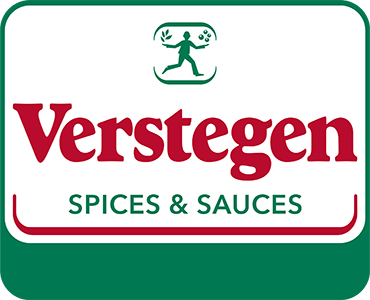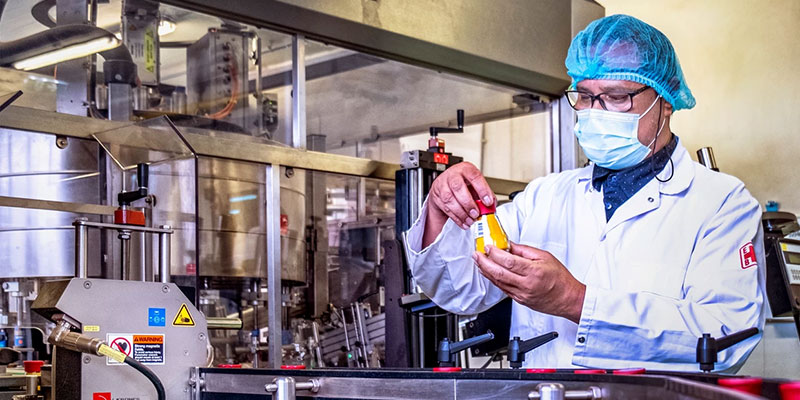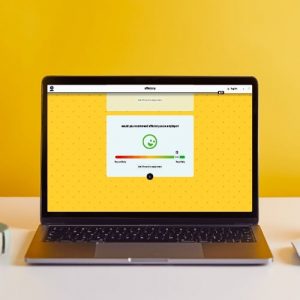How Verstegen Spices & Sauces Transformed Its 130-Year-Old Culture


Verstegen Spices & Sauces has a long-standing presence in the spice industry, dating back to 1886. With a team of 600, the company has embarked on a significant transformation in the last five years. The aim is to move from a top-down organizational structure to one that encourages greater employee participation. A pivotal part of this change has been an employee survey, carried out in collaboration with Effectory. In an interview with Hilde Beckers, International HR Manager, and Fenna van Beurden, Strategic Impact Manager, we explore how Verstegen is navigating this organizational shift.
Verstegen Spices & Sauces, a company with a rich history spanning over a century, is in the midst of a transformative journey. The company is aiming for a more inclusive organizational structure. To make this shift successful, gathering feedback from employees at all levels is key. As Hilde Beckers puts it: “We wanted everyone’s voice to be heard.”
To move effectively towards this goal, Verstegen utilized an employee survey. This case study explores how the company is applying insights from the survey to create a more open work culture.
Setting the baseline
“We didn’t want to conduct an employee survey just for show, or because it’s popular, but to receive real feedback.“
Verstegen started this initiative with a baseline measurement. Valuing each survey response was crucial, as they used these insights as a starting point for change. As Beckers notes, “We didn’t want to conduct an employee survey just for show, or because it’s popular, but to receive real feedback.”
This initiative had an energizing effect on the company, marked by a high 80% participation rate among its diverse workforce, which includes digital natives, those with varying levels of literacy, and non-native Dutch speakers. To ensure inclusivity, the survey was available on both mobile and desktop platforms. This allowed for flexibility, even accommodating those coming off night shifts or those who needed additional assistance to complete the questionnaire during work hours.

The transition
Five years ago, Verstegen began implementing changes aimed at highlighting the unique skills and interests of their employees. A critical part of this change was using employee feedback in their strategic planning. The company set out with a key goal: achieving high employee satisfaction. To measure how well they were doing, they used employee surveys. Their aspirational target was for each department to achieve an average satisfaction score of 8 or higher.
To guide this change, Verstegen relies on a few key frameworks. One significant initiative is “Forward to Origin,” which speaks to the roots of their products, as well as to their Rotterdam identity. The production department is quite diverse, and there’s even a special department for people with a labor market disadvantage.
Whether you’re in the office, sales, or production, mutual respect is deemed crucial for effective collaboration. Verstegen aims to establish sustainable relationships with both their employees and their products. At the heart of this is their “TaPas” model, focusing on Talent and Passion. The model serves to align employees not just with roles but also with opportunities that tap into their innate skills.

Employee well-being is also a top concern for Verstegen, particularly because their workforce is not confined to just an office setting but extends to production areas as well. The aim is to create a work environment that’s conducive to long-term health, ensuring that everyone can retire in good condition.
The Verstegen Academy
Building on an existing culture of learning, Verstegen now holds monthly webinars on topics such as food and sustainability. They’ve also introduced an e-learning platform where employees can share knowledge with one another. This space allows subject matter experts to gain insights into how their colleagues perceive their work. Moreover, the platform features a variety of courses and webinars, serving as a resource for ongoing professional development.

Connecting with employees
We have begun to increase the resilience of employees and teach them that they can hold managers accountable.
True to its Rotterdam roots, Verstegen has historically been more about action than meetings. But to better connect with its employees, some level of formal consultation was deemed necessary. This shift has led to the development of new skills among the workforce: “We have begun to increase the resilience of employees and teach them that they can hold managers accountable.” Now, the company is encouraging a greater level of self-management, giving employees the freedom to prioritize their tasks.
Additionally, leadership opened the floor for employees to express what’s most important to them in their jobs. This was a significant step, breaking away from traditional expectations and showing vulnerability on the part of the leadership. The level of open discussion that followed surpassed even their expectations. Beckers notes, ” By asking the questions with an open mind and out of curiosity, we were able to have very honest conversations.”
The results of the employee survey
The survey showed promising results, with no departments scoring below 6. To turn these results into action, Verstegen organized webinars and team meetings aimed at understanding the data and defining clear next steps. Since open conversations were a new practice at the company, it was essential to keep these discussions safe and anonymous. Hour-long webinars provided a welcoming environment where employees could voice their questions and opinions, making the whole topic less daunting.
Continuous monitoring and action-oriented conversations
After the first round of surveys and discussions, Verstegen continues to be dedicated to regular follow-ups through more surveys. The goal is to use the knowledge gained from these conversations to help guide the company’s direction. This ongoing effort has the entire organization intrigued about its potential impact on the workforce and the organization.
Verstegen is increasingly focusing on creating a culture based on commitment, and Beckers is hopeful that openness will soon be a standard part of the company culture. In her closing remarks, she stresses the importance of a fulfilled workforce for the success of any organization:
“Ultimately, companies are about the people who work there. If you harness people’s talents and passion and your energy system works, you can become very happy together. I hope that people find their own fulfillment and pride in their work and create the feeling that by working together we achieve our goal – both company goals and personal goals: ‘If Verstegen is good for me, then I am good for Verstegen.’“
Book a free demo. See our solutions in action.
Effectory is Europe’s Leading provider of Employee Listening Solutions. Schedule a product demo and discover how to enhance your employees’ engagement.
Demo request